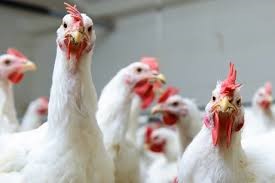It was the 2nd weekend in November and the temperature hovered around -5C. My team in Asia had been working on a chicken project for most of the year, with plans of teaching local men how to raise chickens and develop a sustainable egg-selling business. They were now prepared to receive 800 chickens as the first flock. I had asked if I could help out with it because I am very familiar with chickens, having grown up on a chicken farm in Canada. I wanted to see how this team project worked and to work with the teenage girls on the team. I was expecting to help the girls in the barn with the light work of counting birds or disinfecting feet, since doing outdoor manual labor during the night is not an acceptable thing for women to do in that culture.
While the men on the team were discussing who would be responsible for different tasks, I realized that none of them had experience with handling chickens so I volunteered to be the one who did the unloading. The process became more complicated than expected.
With some concern we awaited the arrival of the semi-truck with its precious cargo. Delays at the border caused it to arrive much later than expected. The chickens had been cooped up a long time and now we were confronted with another problem. The semi was too big to turn on the narrow village streets. It couldn’t get to the barn.
I was driven out to the semi along with a teenage boy and one local man, to the edge of the village. We climbed into the back of the semi-trailer, I in traditional dress and headscarf with a headlamp over it, and started pulling the chickens out of their cages. We put them into cardboard boxes, loaded them into a car and took them to the barn in the village.
Back in Canada I had helped unload chickens many times, usually 10,000 birds in approximately three hours with an experienced crew and an efficient process–not so simple here. Because of having to drive back and forth from semi to barn, the process that started around 10pm ended at 6am just as it was starting to get light outside. I could hardly believe that I had been in that trailer for 8 hours doing manual labor, with no other females to be seen except for the one time when I was brought a cup of hot tea. Back at the barnyard, I walked through the barn to see all the birds in their coops happily eating. It was satisfying to see the completion of my labor. Then, one of the men on the team said to me “If there was no other reason for you to be in this country for this nine month term, this night would have been enough.” In the seven weeks that I had been in the country, many times I had wondered why God had me here – other people would have done so much better in my teaching role, or in learning language or in many other things. Only God knew that my farming background would be such a benefit and encouragement to my team.”
Dee is heading back to the same country this summer for full time service. She wants to share the love of Christ with women–and give a hand in whatever project might be in progress to help and disciple the local people.

